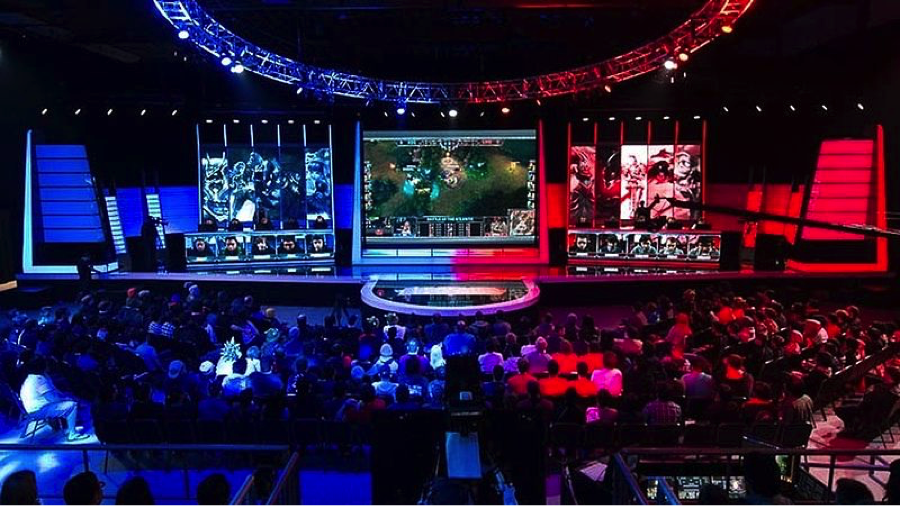

Why are all the esports pros so young? I’m sure there are plenty of people (non esports fans, most likely) who would say it is because they grow out of it, or that no self-respecting adult would begin a career in esports, or that gaming itself is primarily for younger people. However, the reason the vast majority of esports pros are so young, is that the lifestyle that comes with professional gaming is surprisingly tolling.
As you start getting older your skills diminish. The prime age to shine in esports is in the 17-24 range, and most professional gamers retire before they turn 25. There have been gamers that continued their professional career into their late twenties, but the percentage is shockingly low. As you get older, your dexterity, motor skills, and reaction time start to decline, and this makes you significantly worse than the 17-year-old newcomers you’ll be competing against at the next tournament. And once you start losing more and more, your career can quickly come to a halt, either by the hand of your team and sponsors, or your own.
In order to become an esports champion, it takes a ridiculous amount of commitment. You are basically living, breathing, and dreaming esports. Few pros do anything else but practice the game. There is no room for anything else. This means no college, no other hobbies, and countless hours logged into gaming. Gamers often live in houses dedicated to their team, where they can focus solely on gaming day in and day out.
"People get tired in a lot of ways,” says former League of Legends pro, Stephen “Snoopeh” Ellis, who retired at 23. “You play 12 hours a day for six days a week, and after four and a half years... you're waking up in the same environment you're working in and eating in as well, so there's no switch-off. It's a very toxic, intense environment, and for a long period of time that can be very, very tiring. So as a consequence, their play suffers and then they become worse,”
This can be extremely stressful for a people of any age, let alone a young adult. When your skills don’t slip from age alone, the stress and pressure on your shoulders will definitely get to you.
Pro gamer IdrA, one of the most famous and skilled players of Starcraft II, left the scene for a similar reason. When so much pressure is on you to win, tempers can be volatile, and explosions are bound to happen. IdrA was known for his bad attitude and rage quitting. His disrespect for his teammates and others eventually led to him being kicked from Evil Geniuses, one of the biggest teams in esports. Soon after, IdrA announced that he would not be continuing competitive gaming in any way, claiming “It’s just gotten to the point where competition is not enjoyable for me anymore, and that is what kind of drove me in pro gaming.” Skip to the 19:00 mark.
Injuries can also end a career in esports, just as easily as in, say, baseball. Another famous Starcraft II player, MMA, left the game at age 27. Yes, this is a slight exception, as the main reason the Korean player left esports was to join the army, but in an interview he also claimed that he would get pain in his “second finger and elbows.”
Another esports pro was forced to bow out of the game due to a wrist injury. Hai Lam, a professional League of Legends player on one of the highest paid esports teams of 2015, Cloud9, left the team earlier this year after noticing his performance had suffered due to his injury. He released a statement in April, informing fans of his reason for leaving.
This trend gives players an average of about 7 years to compete. After that, what is there for these ex-gamers to do? Many of them passed up college for gaming, and have been dedicated to the esports scene since they were teenagers, and sometimes even younger. They had little opportunity during that time to broaden their horizons. This makes it difficult to move forward after retiring from the esports scene. And even though esports competitors make a lot of money, it is very, very rare that they make enough to support them for the rest of their lives. After retiring from professional gaming, they need to find other career paths.
Many esports retirees consider keeping a job in the esports industry, either as a coach, or taking some other job in esports or gaming. Others consider a job in streaming on Twitch or YouTube. When these options aren’t enough to make a living, or are simply not available to certain individuals, ex-gamers must resort to finding a different career path altogether.
Unlike other sports like football or basketball, you can’t really compete in esports well into your thirties. You get a short run at fame and glory, and when your candle gets blown out, all you can do is bow out and make room for the next wave of esports masters.